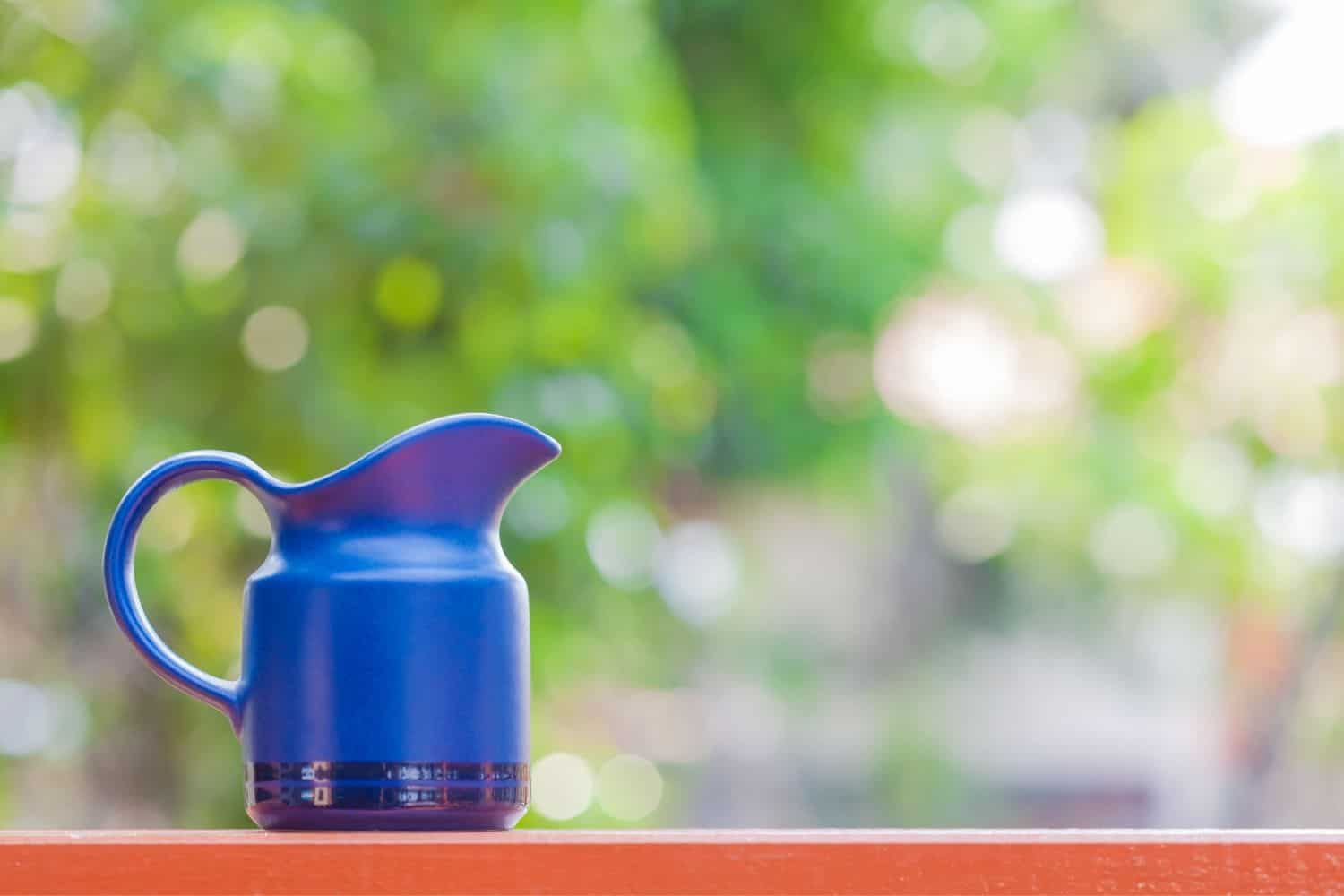Ever drank coffee that has been kept in a pot all day? Well, if you brew coffee and allow it to sit out for several hours, it won’t taste as great as freshly brewed coffee. If you’re a coffee enthusiast, the taste of a day-old brew isn’t what you’d want.

Brewed coffee only stays fresh for a short while. In this guide, you’ll learn the period it takes for freshly brewed coffee to go bad.
How Long Does Brewed Coffee Stay Fresh?
Coffee stays fresh at room temperature for about 30 minutes after brewing. It can only stay fresher for longer when stored in a thermos. The reason behind this is that coffee oxidizes even after you’re done brewing.
Also, its freshness depends on the kind of beans used when brewing. For instance, brewing with stale grounds produces a stale brew. Thus, you need to brew with freshly ground coffee beans for the freshest brew.
Understanding Coffee Oxidization
When air comes in contact with roasted beans, the beans start oxidizing. Oxidizing is the process you see after exposing sliced apples to the open air for some time. Although you can’t see the oxidization process on coffee beans with naked eyes, it interferes with the taste of coffee significantly. The reason behind this is that oxidization affects the flavors in coffee, making them deteriorate. The oxidization process releases flavors into the open air.
Oxidization can be slowed down by storing roasted beans properly. That way, they’ll stay fresh for some weeks. However, ground coffee beans oxidize faster than whole beans. The reason behind this is that ground coffee has a larger surface area, with the finest grind size having the largest surface area.
Essentially, the coffee brewing process involves oxidization. When brewing, ground coffee mixes with water, thereby releasing coffee acids, oils, and aromatics. The resultant liquid is a flavorful coffee brew. The trick in brewing fresh and flavorful coffee is to avoid oxidization before brewing.
Also, heat plays a huge role in determining the flavor of coffee. Coffee grounds release maximum flavors when brewed with hot water at a temperature of 195 – 205 degrees Fahrenheit. Thus, brewing coffee with fresh hot water gives a more flavorful and full-bodied taste than brewing coffee with cold or room-temperature water.
What Makes Coffee Taste Bitter?
It’s important to know that the oxidization process continues even after brewing. If you allow your brew to sit out for several hours, a chemical reaction between oxygen and hydrogen will increase the brew’s pH level. As a result, the brew will taste stale or bitter. That’s why it’s not advised to leave coffee sitting out in a pot for several hours after brewing.
If you’ve brewed excess coffee, put the extra brew in a thermos or container. Ensure the container is airtight.
Bitter coffee also results from over-extraction. You can avoid over-extraction by ensuring you don’t brew longer than necessary. Also, avoid using a finer than the recommended grind size for the specific brewing method. For instance, making French press coffee requires a fine grind size. Thus, if you allow the brew to sit in a French press long after brewing, you’ll get a bitter brew.
If the brew stays in the French press even after pressing down the plunger, it’ll continue extracting and oxidizing, thereby resulting in a bitter brew. Once you’re done with making coffee with your French press, pour the brew into a jug, thermos, or mug immediately.
Stale Grounds Brew Stale Coffee
Just like other foodstuffs, coffee doesn’t remain fresh forever. The longer you store ground coffee, the more it oxidizes. Thus, coffee brewed with old ground coffee will have a stale taste as soon as you finish brewing.
Generally, coffee goes bad differently from other foodstuffs like milk. Old grounds won’t have a rotten odor. Instead, old grounds lack coffee scent.
Although stale coffee is safe to drink, it tastes unpleasant. However, if you add milk to your coffee, it’ll be unsafe to drink it several hours later.
Want To Enjoy Fresh Coffee?
In case you’ve brewed more coffee than what you can take all at once, consider getting a thermos to prolong the freshness of your brew for some hours.
It’s advisable to brew coffee with freshly ground beans for the best-tasting coffee. Thus, you should grind coffee beans just before you start brewing.
FAQs
For how long should I refrigerate coffee after brewing?
Brewed coffee can be refrigerated for a maximum of one week. However, refrigerated coffee won’t smell or taste as great as freshly brewed coffee. When refrigerating coffee, ensure you cover the carafe or cup to prevent the brew from absorbing the aromas and scents of other refrigerated beverages or foods.
Can I take day-old coffee?
It’s not recommended to take coffee that has sit out all day, especially if it’s stale or has an unpleasant taste or smell. Also, brewed coffee tends to accumulate mold when not refrigerated. Also, avoid drinking coffee containing milk after it sits out all day unless you refrigerate it as soon as you prepare it.
For how long does coffee with milk stay fresh?
Perishable products such as milk shouldn’t stay out for longer than 2 hours, unless refrigerated. The same case applies to a coffee brew containing milk. If you’re planning to take coffee that has milk several hours later, ensure you refrigerate it.